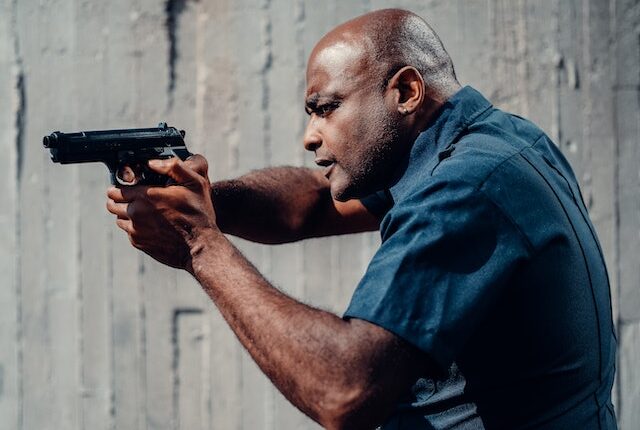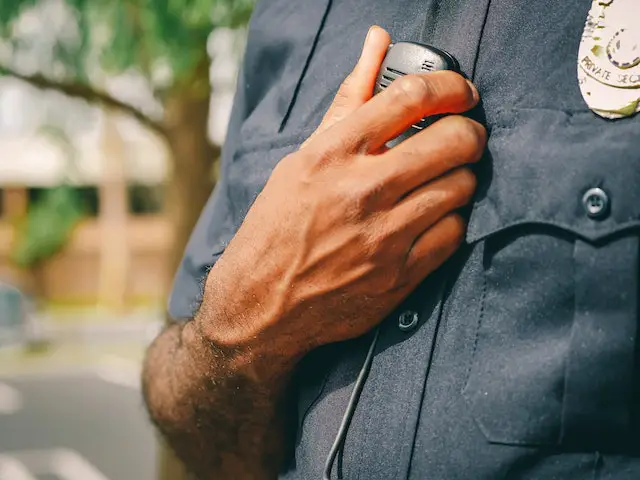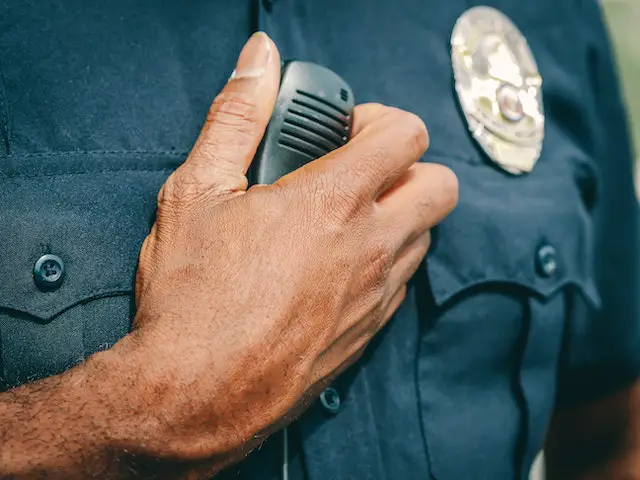
Can a Probation Officer Search Your Roommate’s Room?
The contents of this web page are for informational and educational purposes only, and nothing you read is intended to be legal advice. Please review our disclaimer before taking action based upon anything you read or see.
Can a probation officer search your roommate’s room? If you are among those who ask this question, this post will aid you immensely. When it comes to keeping an eye on the conduct of the individuals they represent who are on parole, probation officers have a lot of power.
Things could be more straightforward regarding searching for an individual’s roommate. In all, a probation officer must have a search warrant or the roommate’s permission before entering the space of a client’s roommate.
Regardless of whether the probation officer has a good basis to think that the roommate is breaking the law, the search must first be authorized by a warrant or the roommate’s permission.
Furthermore, if a probationer is thought of disobeying the terms of their release, a probation officer could sometimes investigate a roommate’s residence. The probationer may need to refrain from specific activities to meet certain parole terms.
This might include drinking alcohol or hanging out with certain people. In such circumstances, it is crucial to search the apartment, which includes the roommates. This will make verifying that the probationer isn’t participating in any illegal activities easier. Come along as we highlight more on this below.
Understanding Probation and Probation Officers’ Authority

A guilty criminal is freed from jail through the legal procedure of probation while being watched over by a probation officer. The probation officer is in charge of ensuring the offender abides by the requirements of their probation.
This might include doing community service, therapy, and drug testing. Probation also offers a chance for rehabilitation and is often a substitute for jail.
Additionally, probation officials get a wide variety of power to administer probation. They have the right to search the offender’s residence or person. Also, they may imprison a criminal who disobeys the conditions of their probation.
They could also suggest modifying the probation’s rules or reporting probation infractions. Overall, probation officials have the authority to advise the suspension of probation and re-arrest.
Legalities of Searching for a Roommate’s Room
Comprehending the laws and processes involved when probation officers search for a roommate is crucial. This will make it easier to make certain the search is legal. Here are some legalities to keep in mind during the search:
The Fourth Amendment’s safeguards
Individuals get protection through the Fourth Amendment against arbitrary government searches and confiscation. You are a government agent if you work as a probation officer. Therefore, you must ensure the search is within the Fourth Amendment’s guidelines.
Probable cause
According to the law, the prerequisite for searching is that there must be probable cause. There must be a reason to suspect there is proof of a probation violation before going inside the roommate’s room. This covers the availability of illicit substances or weapons.
Permit for a search
An essential legal step before inspecting a roommate’s space is if at all feasible, getting a search warrant. The court provides permission for the search in this decree. They could still get permission to execute a search with probable reason even if they do not have a warrant.
Rights to privacy
Even if a roommate is on parole, they are still liable to privacy. The scope of these rights might get restrictions. As a result, a probation officer may be able to search places that the probationer has authority over, such as their bedroom.
When can a Probation Officer search a Roommate’s Toom?
A roommate’s room may get searched several times by a probation officer. The following is a part of this:
If the probationer is believed to have committed a crime
If a probationer is thought of committing a crime, the probation officer has the right to search their room for the first time. When this happens, it’s crucial to thoroughly check the apartment, which includes the roommate’s closet. This will assist in ensuring that no unlawful behavior is occurring. Additionally, this search may be possible outside the roommate’s knowledge or permission.
The roommate’s parole status.
If a roommate is also on parole, the probationary officer may examine the room again. It is customary for probation officials to conduct frequent searches of their residences in such circumstances.
The roommate’s bedroom may or may not be the main focus of the search. However, it is within the purview of the officers’ duty to do a complete search of the whole living environment.
If there is a solid suspicion that illicit drugs are involved.
A probationary officer may examine a roommate’s space a third time if there is a plausible suspicion of illicit drugs. It is crucial to thoroughly check the whole living space, including the roommate if the probationer has a previous failure in drug tests. By doing this, you can guarantee that no illicit chemicals are present.
If the probationer has a track record of acting violently
If the probationer has a track record of aggressive conduct, the probation officer may examine a roommate’s room for the fourth consecutive time. In these situations, it’s crucial to ensure the probationer has no firearms access. This should include anything that could also be in your roommate’s room.
Types of Searches Conducted by Probation Officers

In law enforcement, probationary officers are essential because they watch over criminals who obtain probation or parole. Probationary officers carry out different kinds of searches to ensure the offenders they are in charge of abide by the conditions of their probation or parole. The following are some examples of inspections a probation officer could carry out:
Residential visits:
Probation officials may make house calls to confirm that offenders reside at the location they gave and to look for any illegal objects or activities. Probation officials may examine the offender’s living situation, attendance at treatment sessions, work situation, and family ties when on a house visit.
Drug testing:
Probation officials may administer drug tests to verify that offenders are abiding by any requirements for substance abuse rehabilitation or probation conditions relating to drug usage. To determine if they have drugs or alcohol, offenders must submit to urine, blood, or breath testing.
Vehicle searching:
Probation officials can check a defendant’s car for drugs or other illegal things. Searches of vehicles are possible both on and off the probationer’s property.
Office visits:
Probation officials may go to an offender’s employment to confirm that they are working there and, in the position they claim, and to look for illegal objects or actions. When visiting a probationer’s employment, parole officers may also look at the employer’s input to ensure they are helpful.
What are the Rights of the Roommate During a Search?
Roommates must be aware of their rights during the probationary officer’s search. The following rights should never be out of sight:
The privacy right
You possess the right to solitude as a roommate in your private space. This implies that the probationary officer can only inspect your things or space with your permission and a proper warrant.
The option to decline consent
If the probationary officer doesn’t have a warrant, you possess the right to decline permission for a search. If the probationary officer has a warrant, you can see it and ensure the search is done according to its specifications.
The privilege of silence
During the search procedure, you can stay quiet and avoid speaking to the probationary officer. Avoid saying anything that might be used against you in future instances, or that may prove damning.
My Opinion
The tips above will educate you on possibly a probation officer searching your roommate’s room. You also possess the right to report to the proper authorities if you believe your rights were infringed throughout the search. This includes bringing a grievance to the probationary officer’s superior’s attention or the authority serving the warrant.
References
- What is a Parole and Probation Agent; Michigan Department of Corrections: https://www.michigan.gov/corrections/careers/what-is-a-parole-and-probation-agent
- Parole/Probation Officer: https://www.michigan.gov/-/media/Project/Websites/mdcs/JOBSPECS/P/ParoleProbationOfficer.pdf?rev=5fe443aa2b43436ab142cb34248d1a33
- Howard, Tyson; How a probation and parole officer should supervise sex offenders: https://www.corrections1.com/probation-and-parole/articles/how-a-probation-and-parole-officer-should-supervise-sex-offenders-XTIfDgi35Q2rYXNo/

I’m a driven and accomplished law graduate and post-graduate, passionate about sharing my legal expertise via my blog. I hold a Bachelor’s degree in Law from the University of London (UK) and a Master’s in Law from the University of Derby (UK). Both gave me the foundational knowledge and skills to excel in my chosen career path.
Throughout my academic journey, I have gained extensive knowledge in various fields of Law, including Corporate and Business Law in the USA, Criminal Law, International Law, US Copyright law, and most importantly, American Constitutional law.


Comments are closed.